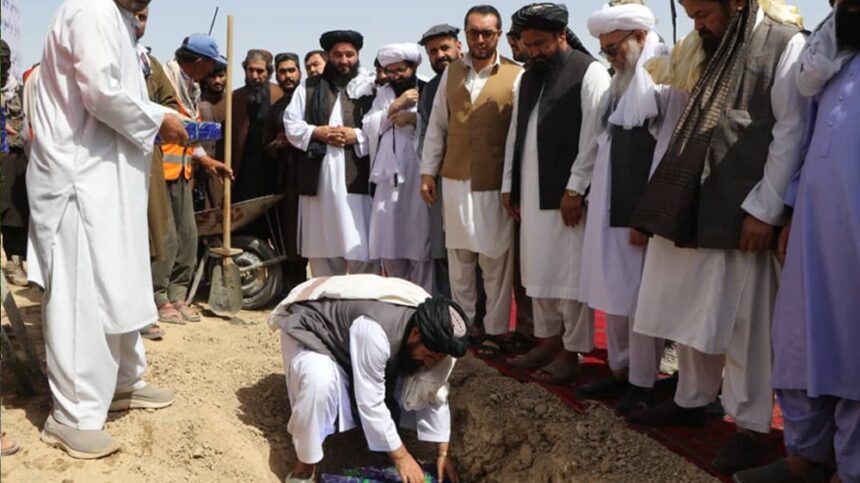RASC News Agency: The relationship between Uzbekistan and the Taliban regime has been characterized as remarkably cordial and cooperative. This is particularly intriguing given that Uzbekistan’s political and administrative system is rooted in secular, leftist, and communist principles, with its leadership still entrenched in communist ideology. Despite this ideological stance, Uzbek authorities have embarked on a project to construct religious schools in Afghanistan. Just yesterday, Uzbekistan laid the foundation for a religious school in Balkh province, committing six million U.S. dollars to its construction.
A visit to Uzbekistan reveals that, despite the nation’s pressing need for religious institutions, not a single mosque has been built by the government over the years. However, instead of channeling this six million dollars towards economic development, educational enhancement, or improving public services in Afghanistan, Uzbek officials have chosen to invest in religious school construction. Afghanistan already has an overabundance of religious schools, and under the Taliban’s three-year rule, scarcely a month passes without the foundation being laid for dozens of new jihadist and extremist institutions across the country. Currently, Afghanistan is home to tens of thousands of religious schools that, rather than contributing to a broad educational curriculum, focus solely on preserving traditional and rigid interpretations of Islam.
Since the Taliban’s takeover, numerous schools and educational institutions have been converted into religious madrasas, with a substantial portion of Afghanistan’s resources and intelligence support being funneled into these school-building projects. However, these are not institutions designed to produce scholars and intellectuals; rather, they are breeding grounds for jihadists, extremists, and terrorists.
Uzbekistan appears to be replicating the strategy that another of Afghanistan’s neighbors has pursued for years using religious schools as a tool to ensure that Afghanistan never advances towards peace and stability. The latest graduates of these schools, supported by regional and global intelligence agencies, have seized control of Afghanistan, transforming it into a prison for its people. By emulating these policies, Uzbekistan seems intent on managing Afghanistan through religious schools for years to come, oblivious to the fact that it neither possesses the capability nor the capacity to do so effectively.
While Pakistan may have succeeded in implementing a similar strategy, it did so with the backing of numerous global and regional intelligence agencies. It is crucial to remember that “the snake that is nurtured, no matter how beguiling, will eventually turn on its master.” Those who once cultivated “snakes” to prey on the Afghanistani people are now contending with these serpents themselves. Central Asia is now a primary target for the Taliban regime and its allied terrorist organizations. Any nation that seeks to cultivate “snakes” in Afghanistan will inevitably find that these “dragons” will eventually turn against them.






